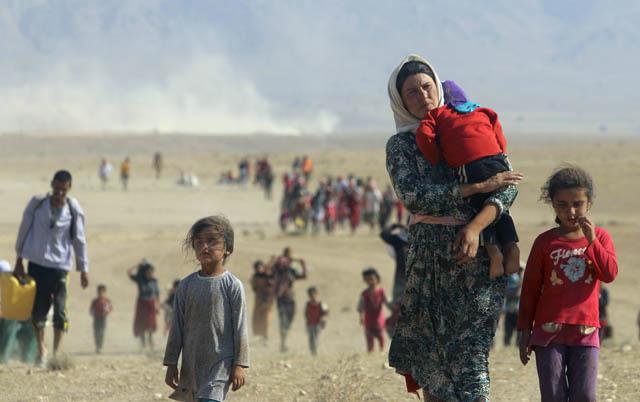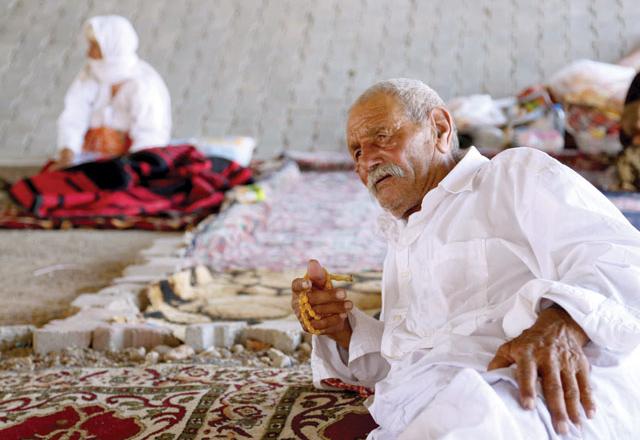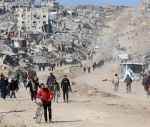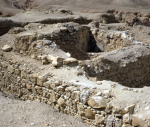You are here
Maliki refuses to go as Iraqis turn to new leader
By Reuters - Aug 14,2014 - Last updated at Aug 14,2014
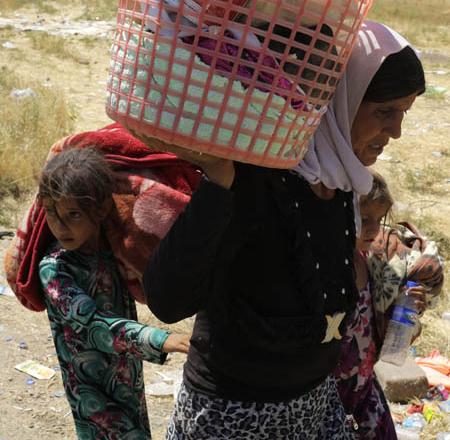
BAGHDAD — An ever more isolated Nouri Al Maliki again protested his removal as Iraqi prime minister on Wednesday as his former sponsor in Iran publicly endorsed a successor who many in Baghdad hope can halt the advance of Sunni jihadists.
While Maliki, abandoned by former backers in the United States and Iraq's Shiite political and religious establishment, pressed his legal claim on power, premier-designate Haider Al Abadi held consultations on forming a coalition government that can unite warring factions after eight years that saw the Sunnis driven to revolt by what they saw as Maliki's sectarian bias.
Shiite-led government forces and their allies among the ethnic Kurdish militias of northern Iraq were in action on the frontlines against the Sunni fighters of the Islamic State as European Union states began to follow the US lead and provide arms direct to the Kurds and step up efforts to help tens of thousands of refugees fleeing the advancing hardline Islamists.
Though Maliki has built up a network of commanders in the armed forces and Shiite militias who owe him personal ties of loyalty, there was no sign that he was ready to resort to force against Abadi, a long-time associate in the Islamic Dawa Party.
In a speech on state television, in his continuing capacity as acting prime minister, Maliki said he was waiting for the supreme court to rule on his complaint that, as leader of the biggest bloc in the parliament elected in April, it was he, not Abadi, whom the president should invite to form a government. A court ruling against Maliki could be a way out of the stand-off.
“The violation that occurred has no value,” Maliki said. “This government is continuing, and will not be changed except after the Federal Court issues its decision.”
But the United States, during whose occupation Maliki first rose to power, made clear again that it has had enough of him — the White House said it would be glad to see an Abadi government and urged Maliki to let the political process move forward.
Iranian supreme leader Ayatollah Ali Khamenei offered his personal endorsement to Abadi. He publicly distanced himself in the process from Maliki, who has looked for support from Iran, where he spent years in exile opposing Sunni dictator Saddam Hussein.
“I hope the designation of the new prime minister in Iraq will untie the knot and lead to the establishment of a new government and teach a good lesson to those who aim for sedition in Iraq,” Khamenei said in a statement on his website.
In online statements, Abadi said on Wednesday he had called on the various political blocs to appoint representatives to take part in talks on forming a Cabinet. He hoped for a “strong government” that could help the country resolve the “crises and problems it faces on the political and security levels”.
There was more familiar bloodshed in Baghdad, where at least 12 people were killed by bombs in two mainly Shiite areas.
And there was violence too on the 1,000-kilometre front established by the Islamic State, which exploited the political stalemate in Baghdad to burst beyond strongholds in Syria to claim a cross-border caliphate occupying up to a third of Iraq.
Kurdish peshmerga militia sources said their forces clashed with IS fighters in Diyala, northeast of Baghdad. In the provincial capital, Baqouba, five Sunni Muslims were killed when Shiite gunmen shot them as they prayed in a mosque.
Government forces, who collapsed in the face of the Islamic State in June, fought alongside Shiite volunteers around the Sunni city of Tikrit, north of the capital, and residents also reported skirmishes in the western cities of Ramadi and Fallujah.
With ethnic Kurdish Peshmerga forces pushed back on the defensive by the Islamic State this month, France announced it was joining the United States in urgently supplying arms to the autonomous regional force, and EU foreign ministers agreed to break summer holidays to meet on Friday to discuss the crisis.
In addition to arming the peshmerga and, in the case of Washington, bombing militant positions, Western powers have been trying to help aid agencies drop supplies and provide refuge for tens of thousands of people, many of them from non-Sunni communities, who have fled attacks by the Islamic State.
The White House said the United States was looking with its allies at setting up airlifts and safe land corridors to rescue people, including many from the Yazidi sect stranded on the arid heights of Mount Sinjar near the Syrian border.
Related Articles
Iraq's new prime minister-designate won swift endorsements from uneasy mutual allies the United States and Iran on Tuesday as he called on political leaders to end crippling feuds that have let jihadists seize a third of the country.
Three months after he took office with a mission to unite his broken, warring country, Iraq's new prime minister has swept away the divisive legacy of his predecessor with a burst of rapid and dramatic measures.
Iraq's Nouri Al Maliki has given up his post as prime minister to Haider Al Abadi, state television reported Thursday — a move that could end a political deadlock that plunged Baghdad into uncertainty as the country fights a Sunni militant insurgency.


